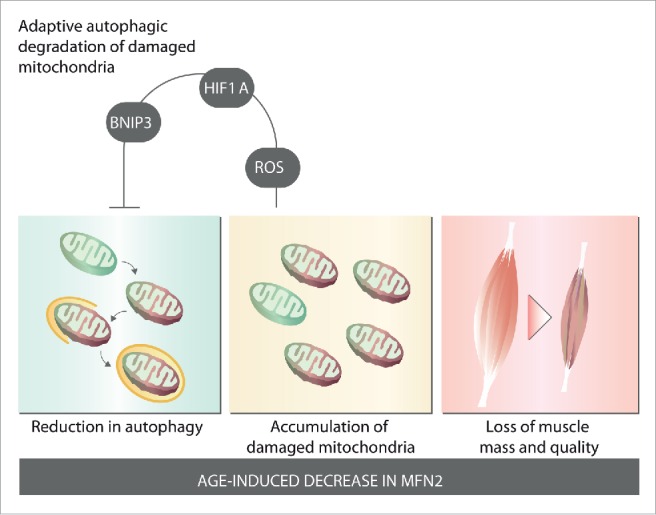Figure 1.

MFN2 controls muscle fitness during aging. Aging is associated with a decrease of MFN2 protein expression in skeletal muscle. Age-induced decrease in MFN2 triggers a decrease in autophagy, which leads to an accumulation of damaged and dysfunctional mitochondria. These alterations lead to a loss of muscle mass and quality, and sarcopenia. Aging and MFN2 deficiency induce a ROS-dependent HIF1A stabilization, which promotes a BNIP3-driven mitophagy pathway; this represents an adaptive mechanism to minimize accumulation of damaged mitochondria.
